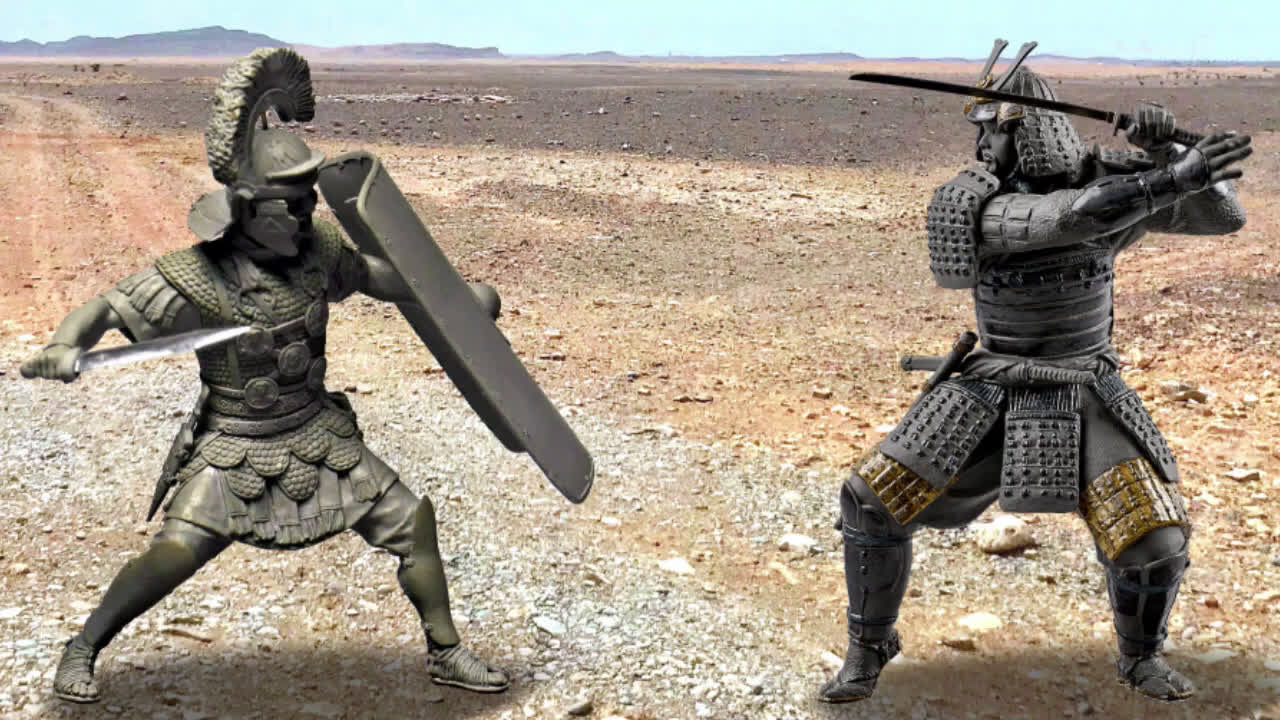
That Iron to late medieval age pre-gunfire armies would fair more or less equal against each other on the battlefield, regardless of era.
Last edited:

No, I don't think so.
That Iron to late medieval age pre-gunfire armies would fair more or less equal against each other on the battlefield regardless of era.
No
That Iron to late medieval age pre-gunfire armies would fair more or less equal against each other on the battlefield regardless of era.
As in Hannibals army at Cannae versus the British army at Crecy or a similar example? Or that you could take say an Assyrian army at the start of the Iron age and pit it against a Crusader army and they would be easily matched? In a word no. But in more detail the mere material that an army uses for its weapons has very little bearing on the technology, the tactics, the organization, the doctrine, and the situation. Saying all pre-gunpowder armies are equally matched is like saying any two wooden warships pitted against one another would be equal. You would ignore thousands of years of development and advancement, as well as myriad examples of precisely the thing you say is so being proved completely false.
That Iron to late medieval age pre-gunfire armies would fair more or less equal against each other on the battlefield regardless of era.
I think size does matter as well. Size permits better organization and just power. Though a leaderless horde madly charging will be inferior to a well led smaller force within reason.It's not necessarily "later is always better", I think - I am not sure if a 1st century Roman army vs. a 8th century Lombard army necessarily favors the Lombards so much they can guarantee a win - but the differences between a 1st century Roman army and a 8th century Roman army are pretty meaningful.
Yeah. Size seems like something not necessarily steadily improving with the date - I'm not sure either 1st or 8th century Romans can easily support 50,000 men in one place, but it does seem to have generally favored later era forces as generally from better organized and larger states.I think size does matter as well. Size permits better organization and just power. Though a leaderless horde madly charging will be inferior to a well led smaller force within reason.
Isn't this a "You're approaching me" fight? I'm guessing that the phalanx can't get close enough to make a difference here?So a phalanx had a 50/50 chance against Welsh longbows? I get that gunpowder is much more of a force multiplier then anything before it, but there's much less ridiculous ways of making that argument.
Yeah, that's what I was trying to get at. "They don't have guns, we don't have guns, therefore it's even" is criminally naive.Also, Mongols... wrecked many other armies larger than they were due to superior tactics. Armament and tactics matter.
Well, actually the Welsh had been beaten and conquered by the English. 😜So a phalanx had a 50/50 chance against Welsh longbows? I get that gunpowder is much more of a force multiplier then anything before it, but there's much less ridiculous ways of making that argument.
I think we're splitting hairs here. Both of us understand that it's a combination of equipment, training, planning, terrain and other things that lead to victory.Well, actually the Welsh had been beaten and conquered by the English. 😜
But the English armies of the Middle Ages were not just the longbowmen just as the Macedonian army was not just a phalanx. In both cases strength was in a combination of the numerous components which had to be deployed properly. Weaponry on its own was rather secondary to the organization and tactics and a part of the success was in a skillful use of the systematic weaknesses of the opponent’s military system.
No, I think what he's saying is relatively clear: that a good army is a good army is a good army, regardless if it happened to originate in 100 ad or 1000 ad. The difference in weapons tech was small enough despite the large gap in times to be a deciding factor.I think we're splitting hairs here. Both of us understand that it's a combination of equipment, training, planning, terrain and other things that lead to victory.
For a better analogy, perhaps the video's author is suggesting that Boudicca had a 50% chance at Watling Street, just because the Romans didn't have guns?
Yes, and vice-versa. So for instance, if you were to take say full plate armor from the 1400s and put a force wearing that up against a Roman legion, what are the Romans even going to do? This is a force who wear armor that longbow arrows just bounce off of. And their horses are also wearing barding. The Gladius and Pilum can do literally nothing to them.Weren't some weapons designed specifically to try to get around certain armor advancements?
The English slaughtered them just fine with normal swords and daggers once their ranks were disrupted. If nothing else, Roman swords, daggers, and javelins can thrust through eyeslits and into groins and armpits protected by mail instead of plate. And there are likely to be far more Romans on the field than whatever medieval army you care to pick, so they can afford to let their first battle line get beat up if it disrupts enemy formations and leaves them vulnerable to a counterattack.Yes, and vice-versa. So for instance, if you were to take say full plate armor from the 1400s and put a force wearing that up against a Roman legion, what are the Romans even going to do? This is a force who wear armor that longbow arrows just bounce off of. And their horses are also wearing barding. The Gladius and Pilum can do literally nothing to them.